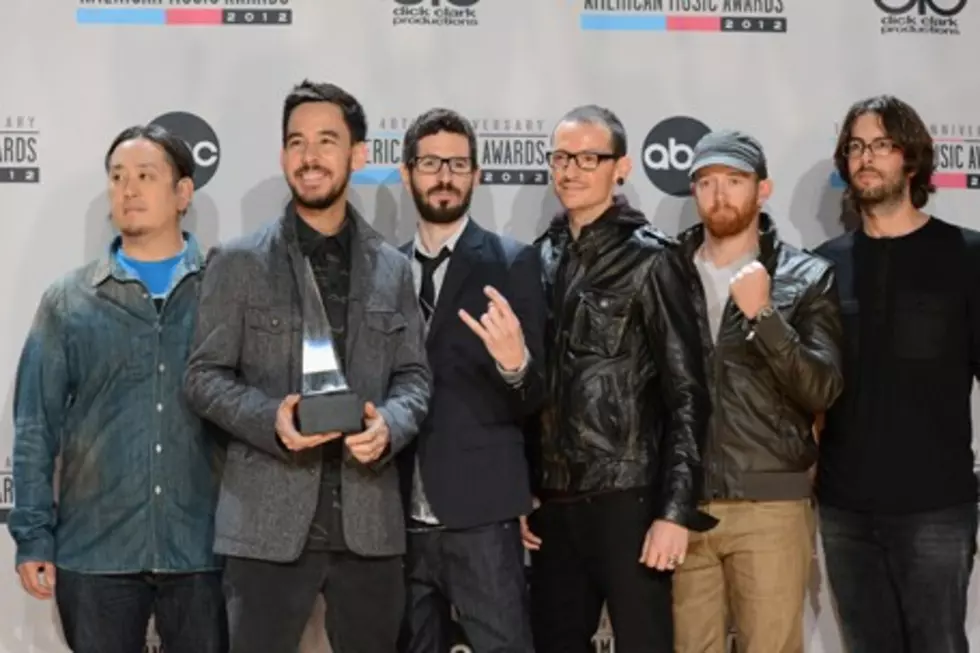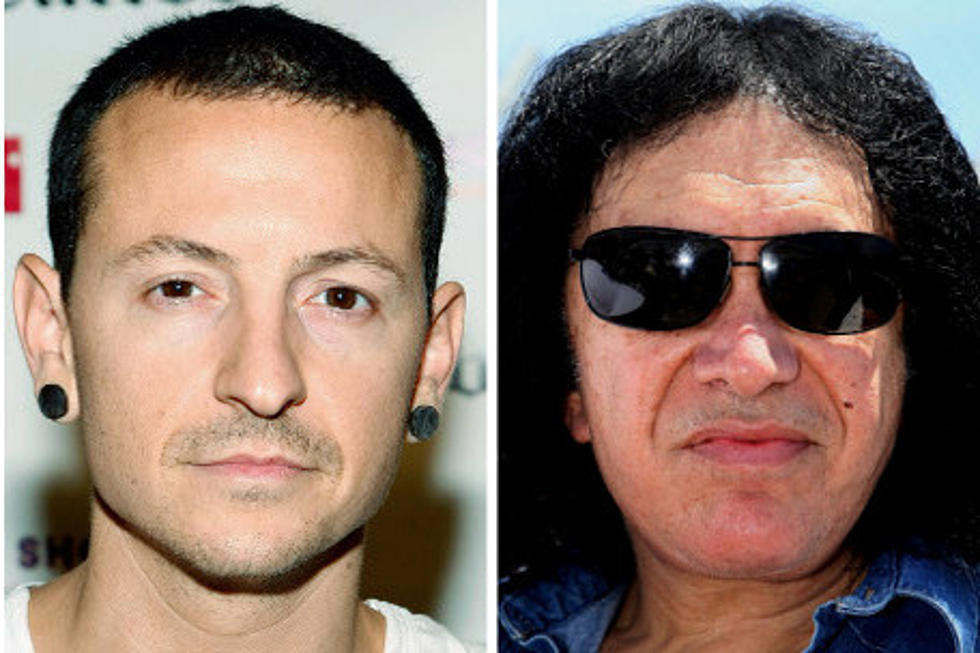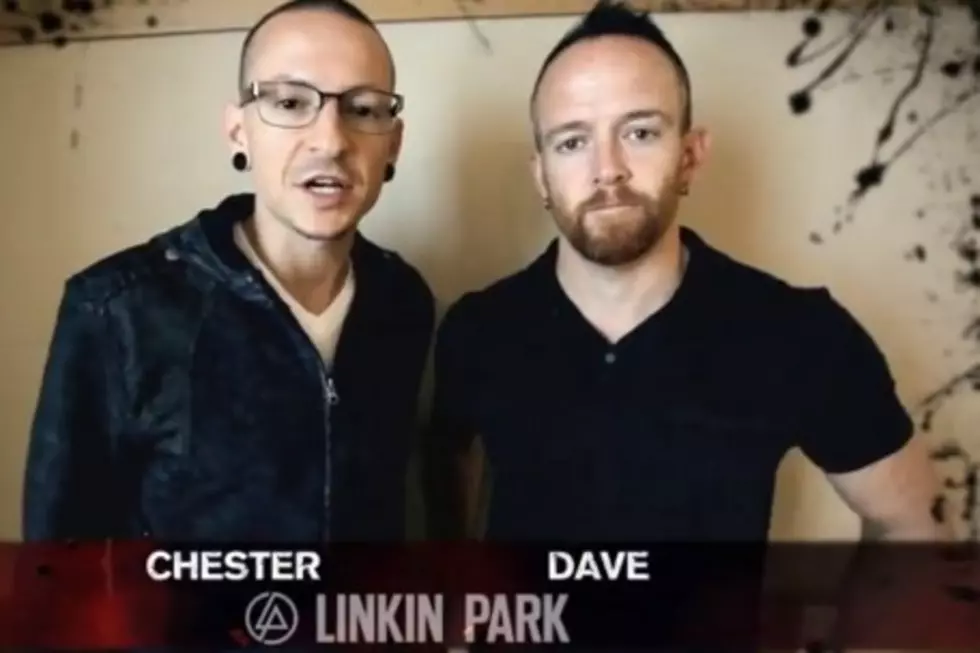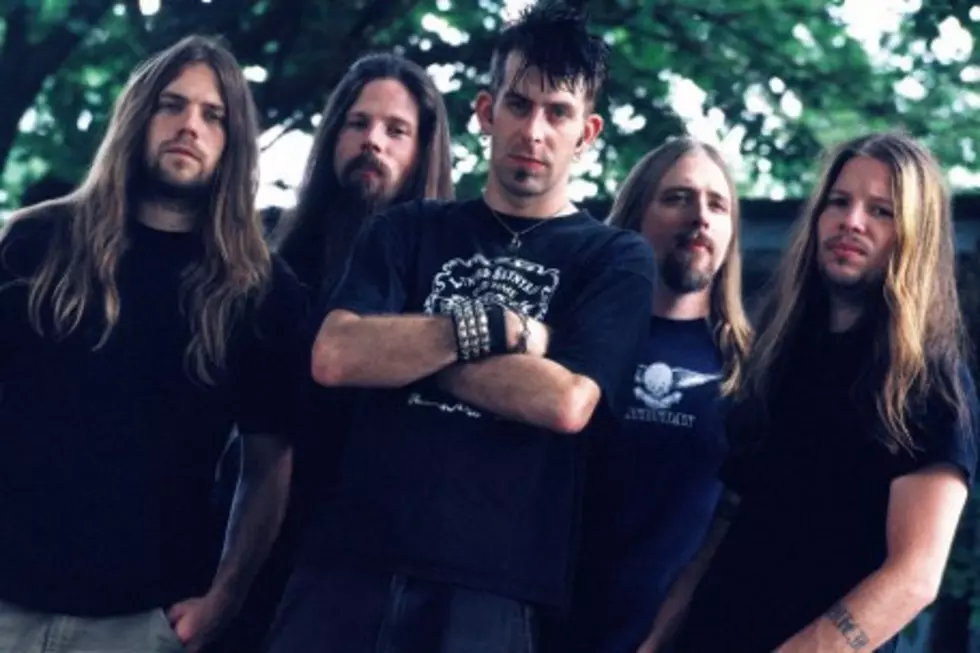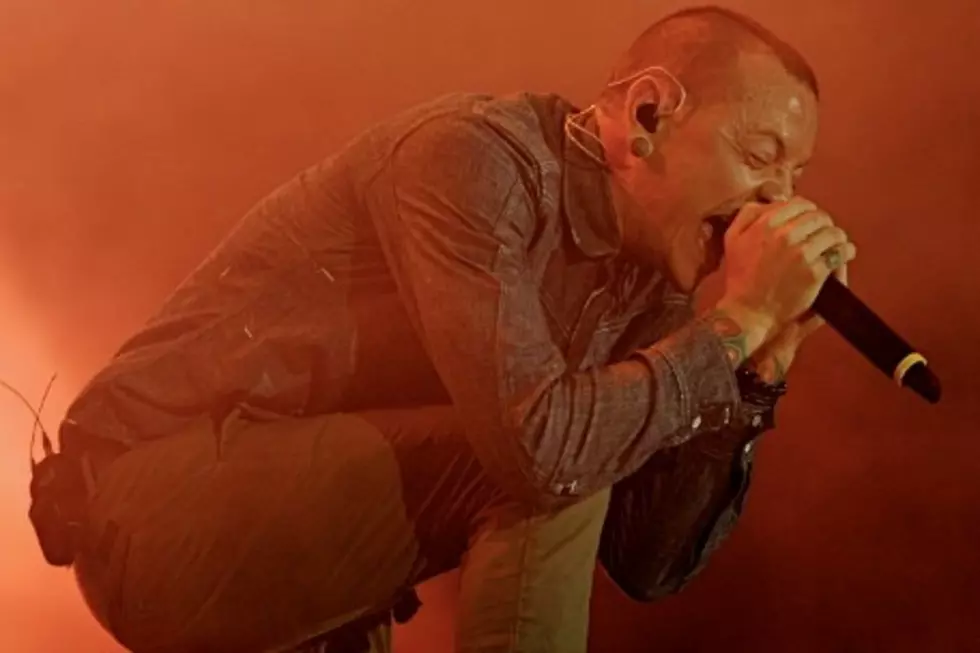
Linkin Park Open Up Their Minds for New Album
Linkin Park once again teamed with super producer Rick Rubin for their new 'A Thousand Suns' album -- to absolutely dazzling results. Arguably their most mature release, it's a compelling work both sonically and lyrically. How did they achieve these results?
Noisecreep spoke with co-producer and key sonic architect Mike Shinoda about the making of the album and how Linkin's references have grown considerably. Despite some very hippie approaches that led to 'A Thousand Suns,' the band hasn't gone tie-dyed.
This album's been called very different from other LP albums. How did your approach change for making 'A Thousand Suns'?
I look at it like over time our musical vocabulary has grown. Like in our most rudimentary version of our band back in 1997, our earliest demos sounded like the Roots meets Alice In Chains meets Aphex Twin or Prodigy or something. It was all stuff that we were currently listening to that was kind of current at the time. Those were our earliest demos. Over time we just simply started listening to more stuff.
I think as we got into this record, in terms of like a dimension, it wasn't just an X axis of like, "Is it rock? Is it electronic? Is it hip-hop?" It wasn't like a Y axis of "Is it mainstream stuff? Is it underground stuff?" There was also a Z axis of "Is it from today, is it from tomorrow, is it from the '60s or the '70s?"
I think our musical vocabulary has just broadened out in all of those directions. When you've got a better vocabulary, you're able to communicate your ideas to one another in a more specific way; you're able to draw from inspiration in a different way, and this album was all about listening to our favorite music and whatever, but really never referencing that stuff to make our stuff. It was just like we know what we like. We're better in the studio than we've ever been. We're hopefully better at writing songs than we've ever been, and we can go in and make something that we feel is coming from an honest place and it's the best sonic version of the idea that we have.
What were some of the ideas that emerged that surprised you guys as a band?
Well, it was a really intuitive process. Our default mode is to be very detail-oriented and perfectionist, and to let go of that and be free to experiment for as long as it would go was a weird thing for us. This record was more like, "Let's jam on that idea until it takes us to the next one. Let's just let the song decide." And it seems like almost a weird psychedelic trip, like a hippie mentality or something, but we're not sitting around in tie-dyed shirts doing acid [laughs].
We're still the same perfectionist, detail-oriented guys opening our minds up to this idea, and the balance of the order and the chaos just always seemed to come into play. They were always at odds in the lyrics and the music. [Lyrically] this record was made over two years, and you experience a lot of things in two years -- whether you're talking about emotional things or experiences with reality, things you read in the news or see on TV. And I think that in conscious ways and unconscious ways that stuff worked its way into the album. And in many cases, it just kind of showed up.
In the middle of the process, we had a song called 'Blackout.' We had the music and the scat vocal where Chester was kind of screaming gibberish over the crazy dance-style track, and there were no words. And every time we tried to put words to it, the lyrics felt like too left-brained, we were thinking too hard and it didn't feel like a gut spill to use Rick's words. And so at a certain point we got frustrated and I happened to ask Rick, "Is there something I can do to tap into this a little better and get it right?"
He said, "Yeah, have you heard of automatic writing? It's something that I've done with like Tom Petty, Johnny Cash; many other people do it." Essentially, to make a long story short, he said, "Let the music loop and go into the track singing words and melody right off the bat and whatever the song wants to do, whatever words pop out of your mouth, make it the song and go for it."
To walk up in front of the mic on record -- and possibly other people in the room, your engineers or whoever watching -- and to act like you can sing a brand new song with brand new words and melody off the top of your head, that's pretty f---ing crazy. It's a daunting task, and when we started doing it we were terrified that we were gonna say something that we didn't want to say, maybe say something mean about somebody, say something revealing about ourselves, say something offensive; like you never know what could pop out of your mouth.
And it took us a while to get over that and just go into the booth and let stuff flow right off the top of our head. And it literally felt like you were hallucinating, it felt like you were channeling the song, and by the end of the album we had tracks where most of the song was off the top of our head and we didn't even write down any words. We didn't even know what we were saying. To this day I'm saying some of the words wrong, because I'm saying some of the other vocal scats that we did.
And then once you have that then we went in with our kind of like left brain, our organized, order-based mentality and really crafted the lyrics and made sure they said the right things and there were layers of meaning that we liked. But again, that balance of the chaos and the order is kind of what the record is built on.
When Rick Rubin is giving you the same songwriting advice he gave Johnny Cash and Tom Petty, what does that mean to you?
That particular story about the automatic writing hasn't been told yet about this record, and it's a really important one. It's a moment in the process that defined the record to some degree. We have been working with Rick since 2006, I think, off and on. We did an entire record for 18 months with him, and then we were in the studio for another three or four or five months this time and then he gives us this gem.
So once we tried it and it worked we sat around and celebrated that and said, "Oh my god, like it's incredible." Rick didn't tell us how to make this song. He said, "Here's a technique. I think you guys are ready for it and I want you to try and use it." And two things occurred to us. Number one, if he had told us about this technique any earlier we would not have been ready for it. He is definitely a mentor -- like a sensei in this example -- because he knew the right time to give us that gem. And the second thing it made us think is, "Holy s---, how many more of these things does he know he hasn't told us yet? What's the next gem he's gonna give us?"
He's constantly doing this, and he waits for just the right moment and you usually have to ask him.
What made you more open this time to these techniques?
We were just more interested in this writing style than ever before. When you've made a bunch of albums and written in the studio as long as we have, you are looking for things to keep it interesting and make it fun. And there are certain techniques or certain ways of going about things in the studio that are kind of timeless.
I can't imagine that it will ever get old to sit down at piano with me and Chester in a room and write a new song that way. That's just one of the timeless good feelings that you get in a studio and the songwriting process, as opposed to renting some cool exotic instrument that you've never played before. Like you'll play with it and then it'll get old. You'll rent it, you'll play with it, you'll use it, and then you'll give it back [laughs].
What were a couple of the songs that maybe moved in directions that surprised you, and how did they surprise you?
Well, 'The Catalyst'; we picked that as the single because we felt like it was the best indicator of the change in sound and direction that this record was gonna bring. I don't think, to be honest, there's any song on the record that's gonna sum up the whole record. So it wasn't like this is an indicator of how the whole album sounds, it was just an indicator of the change that was happening.
It's a six-minute song, the chorus isn't the most catchy thing in the song. I think the 'A' section and the 'C' section are the most catchy -- arguably the turntable solo is as catchy as the part that actually would be the chorus. But what I really liked about that song is it was a very fluid, automatic writing experience where I was just playing the organ sound that happens in the intro and I started singing the words that basically were the foundation of what ended up being the final vocal; maybe 50 to 75 percent the same.
And it just built up from there to the almost six-minute version that you hear now. I think that song is probably more powerful in the context of the whole album. At this point in time, everybody listens to music in little bite-sized chunks, so we thought it might be a good time to make a case for the album. We love the album format, we grew up pressing play on a cassette or dropping the needle on vinyl and listening to a whole album, and people just don't do that as much anymore.
As far as another song, I'd say 'Waiting for the End' is one of the songs that stands out to a lot of people on the record, because people who are fans of our band haven't heard a song that mixes these kinds of emotions and these kinds of lyrics. One minute it's blazing loud, and the next minute it's super dark and quiet and even a weird mix of hopeful and fearful. And to me, it's a very three-dimensional song, and I think it became that kind of a song because of the insane writing experience on it.
It started off with the drums and the rapping, and then some of the music came along, but it was really a boring track. It was good, but it wasn't great yet, and we always felt like it had the potential to be great. And I was working with Chester in the studio, and we were trying to think of some words to sing over it and he always records vocal ideas on his phone. And he happened to go through his phone and pick through vocal ideas, and he sang 'Waiting for the End to Come,' and we both just loved how it sounded over the music. So we basically put that into place and wrote all the rest of the music around that. It was a trip.
More From Noisecreep


